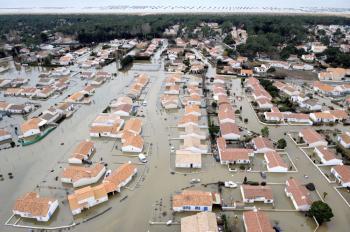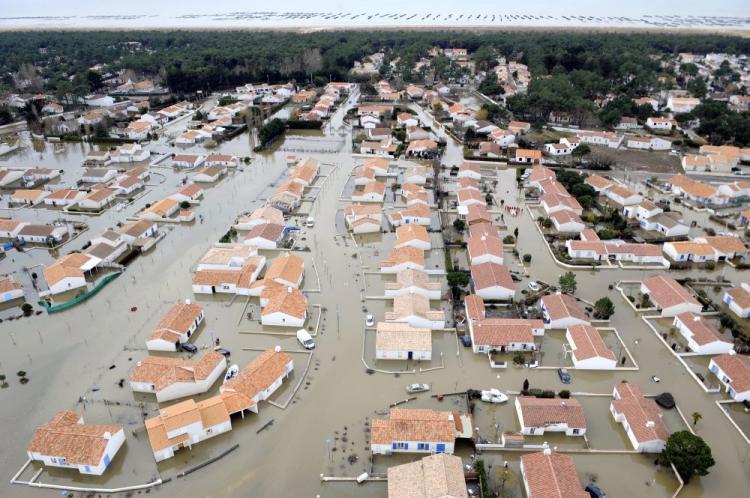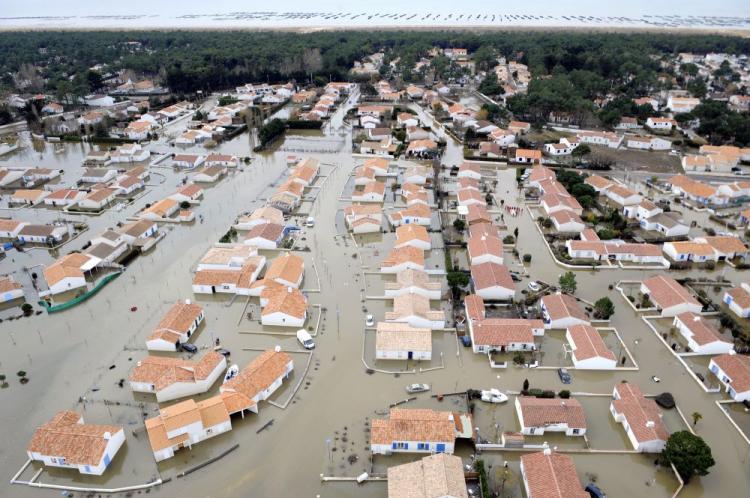French Government Will Destroy Houses of Storm Survivors
The French government has decided to stay firm on its decision to destroy more than 1,500 houses.

An aerial view taken on March 3 shows flooded fields in the Vendee region of western France, three days after the storm dubbed 'Xynthia' unleashed gale force winds and torrential rains, destroying roads and houses along France's Atlantic coast and left 53 dead. Bertrand Guay/AFP/Getty Images
|Updated:






